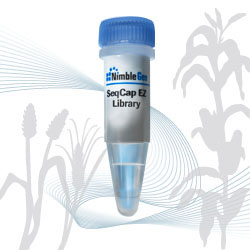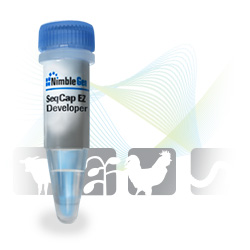 Solid organ transplantation has become a common procedure, however the risk of graft organ rejection is an ever present danger. While there has been significant progress with immuno-suppression therapies, there is still significant risk of graft organ rejection, even when appropriate HLA matching has been performed. For instance, transplant rejection rates are much higher in cases when the donor and recipient are of the same sex, or of different ethnic backgrounds. This and large scale epidemiological and other datasets suggest that additional genetic factors are at play in allograft rejection processes. Possible sources of genetic variation underpinning rejection are homozygous deletion copy number variants (CNVs) spanning whole gene or exon regions and Loss of Function (LoF) variants ablating two copies of a given gene, resulting in incompatibility across the proteomes of donor and recipient. It has been shown through large-scale whole genome sequencing studies that the average human has 20 genes disrupted (i.e. with LoF) in two copies1.
Solid organ transplantation has become a common procedure, however the risk of graft organ rejection is an ever present danger. While there has been significant progress with immuno-suppression therapies, there is still significant risk of graft organ rejection, even when appropriate HLA matching has been performed. For instance, transplant rejection rates are much higher in cases when the donor and recipient are of the same sex, or of different ethnic backgrounds. This and large scale epidemiological and other datasets suggest that additional genetic factors are at play in allograft rejection processes. Possible sources of genetic variation underpinning rejection are homozygous deletion copy number variants (CNVs) spanning whole gene or exon regions and Loss of Function (LoF) variants ablating two copies of a given gene, resulting in incompatibility across the proteomes of donor and recipient. It has been shown through large-scale whole genome sequencing studies that the average human has 20 genes disrupted (i.e. with LoF) in two copies1.
Roche NimbleGen has designed a panel to capture 6.5 Mb of DNA, targeting over 300 hdCNVs and non-exonic PGx content, and spiked it into the 64Mb SeqCap EZ Exome Enrichment Kit v3.0 whole exome capture product (Roche NimbleGen). DNA from over 500 tissue and blood samples from transplant donors and recipients (including lung, liver, heart and kidney) within the NIH prospective Clinical Trials in Organ Transplantation-03 (CTOT-03) study were subjected to the 70.5Mb capture tool followed by SGS on HiSeq2000 (Illumina). We compare hdCNV and LoF carriages across the entire donor pool compare with the entire recipient pool in order to assess inherent differences between these two populations. Custom probes for dozens of putative candidate allogenic targets were then brought forward for screening on a transplant specific 175,000 peptide array tool (Roche NimbleGen).
1. MacArthur et al, Science 335, 823 (2012). A Systematic Survey of Loss-of-Function Variants in Human Protein-Coding Genes
Unless explicitly stated otherwise, all Roche products and services referenced in this presentation/document are intended for the following use:
For life science research only.
Not for use in diagnostic procedures.
SEQCAP is a trademark of Roche.
All other product names and trademarks are the property of their respective owners.
Speaker

Dr. Brendan J. Keating, Assistant Professor of Pediatrics and Surgery, Perelman School of Medicine, University of Pennsylvania
More info coming soon.
Who Should Attend?
- Genetics and Genomics Researchers
- Principal Investigators
- Laboratory Scientists
- Clinical and Translational Researchers
- Cancer/Oncology Researchers
- Genome Center Directors
- R&D Directors, Managers in Pharmaceutical and Biotechnology Companies
- Agricultural Genetic Researchers
Xtalks Partner

Roche
Roche NimbleGen is an innovator in the life sciences market focused on research activities and manufacturing target enrichment probe pools for DNA sequencing. Capitalizing on the efficiencies inherent with parallel enrichment, researchers can now design economical, high throughput, and time-saving next-generation sequencing experiments. Next-generation sequencing combined with Sequence Capture probe pools offers researchers a clearer understanding of genomic structure and function in order to understand the impact of genes on biological processes. We are part of the innovations in sequencing solutions for life science research, now and in the future.
Media Partner
You Must Login To Register for this Free Webinar
Already have an account? LOGIN HERE. If you don’t have an account you need to create a free account.
Create Account




